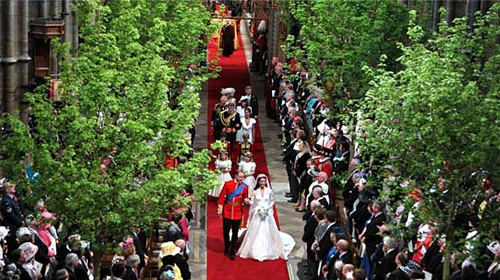Prime Minister David Cameron, obviously as philosophically adrift as his counterpart across the pond, is on a mission to deconstruct marriage in Britain. It’s evident, as we witness our own culture erode, that progressives’ “morality,” such as it is, is entirely relative. “Right” and “wrong” are based on their present feelings, personal desires and frequently, political expediency. The very concept of transcendent truth is foreign to these folks.
So I imagine that Britain’s same-sex marriage proponents are more than a little upset to find that the Church of England is actually claiming that all truth is not subjective; particularly when it comes to marriage.
I was pleasantly surprised by this article by Mark Tooley at the American Spectator reporting that the Church, not exactly a bastion of conservatism, is opposing any attempts to “alter the intrinsic nature of marriage as the union of a man and a woman, as enshrined in human institutions throughout history.”

The Church issued an official response stating its opposition to the government’s push for same-sex marriage with vigorous, point-by-point rebuttals:
“Marriage is not the property of the Church any more than it is the property of the Government. It is about a mutually faithful physical relationship between a man and a woman…”
“If you do what the Government say they are going to do, you can no longer define marriage in that way. It becomes hollowed out, and about a relationship between two people, to be defined on a case-by-case basis.”
Imposed same sex marriage would precipitate the “gradual unravelling of the Church of England which is a very high cost for the stability of society.”
Marriage benefits society by “promoting mutuality and fidelity, but also by acknowledging an underlying biological complementarity which, for many, includes the possibility of procreation.”
Although progressives and other assorted secularists and non-believers seem to relish “shaking their fist at God,” it’s encouraging to see that the Church of England most emphatically does not.
Things could get very interesting now that they’ve expressed official opposition, because the Church of England, as the nation’s established church, still wields political and constitutional powers. As Tooley concludes his article:
The church’s defense of traditional marriage may have lasting constitutional implications for Britain. It may also turn out to be its finest hour.
Amen.




